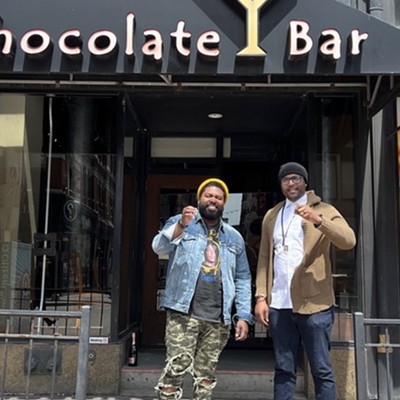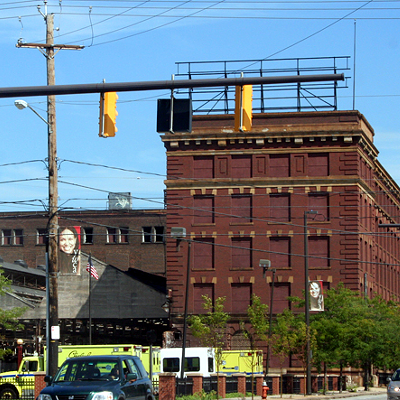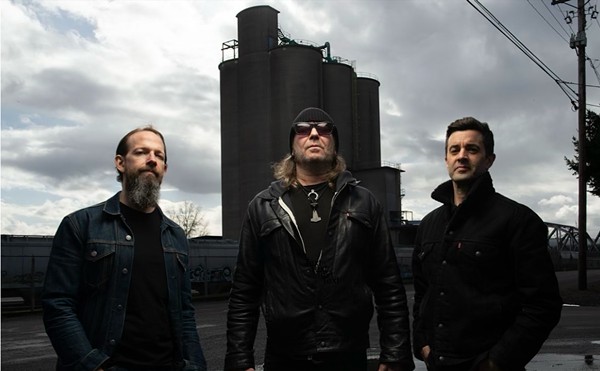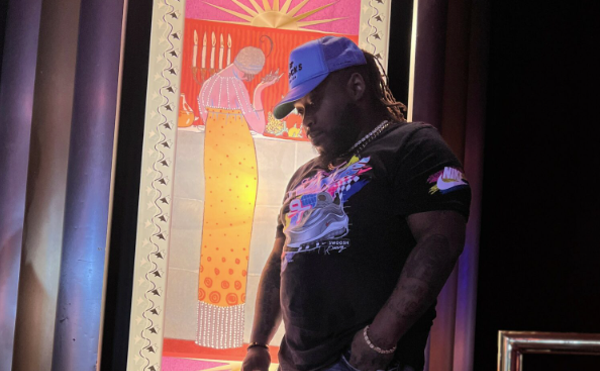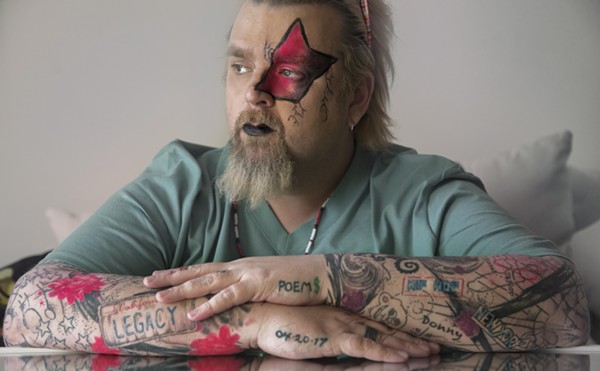The Milwaukee-bred band BoDeans have been making music for over 30 years now and in talking about American Made, the most recent album that was released in 2012, singer/songwriter/guitarist Kurt Neumann, the founder and frontman of the group says, “I’ve always thought of the BoDeans as a truly American band.” It’s a band, which he says was initially comprised of “blue-collar kids straight out of the heartland.” Early on, they found themselves tagged as a “roots rock” band. He acknowledges that it wasn’t a label that he loved — but he’s made his peace with it.
“I came to realize that if by ‘roots' you meant blues, rock, country and soul all slammed together into one sound, then I'd say yes — that is the sound of American-made music." A number of singles would garner rock radio airplay for the group over the years, but it was “Closer To Free,” first released in 1993 on the band’s Go Slow Down album, which would bring their music to a wider audience when it was later adopted as the theme song for the television show Party of Five.
There’s a laid-back easygoing feel that threads through the group’s catalog, but as the title of their recent live album Amped Across America suggests, they’re definitely a rock ’n’ roll band, something that has been amplified on the current tour with the presence of legendary drummer Kenny Aronoff (John Mellencamp, John Fogerty, Bob Seger) behind the drum kit. The BoDeans will be back in Cleveland this week for a show at the Music Box Supper Club on Wednesday, Oct. 8, so we chatted with Neumann to talk about a recently-completed new album, the challenges that he faces with the current state of the music industry and what’s ahead for the group.
I was excited to hear that there’s a new BoDeans record in the can, so I’d love to start there and hear whatever you can tell us about that.
The record’s called I Can’t Stop and it should come out in mid-February. It’s a pretty uptempo record. I’m not one of those artists who makes a real moody record. The last couple that I’ve made have been really up-tempo and I find that they just translate really well to playing live, which you know, our shows are pretty high energy shows, which is why we have Kenny Aronoff drumming. It works out really well — that way we have fun shows to play and good times. So for now, I keep the records more rockin’ and uptempo. So yeah, it should be out in February and I think it’s my 12th studio record, so it’s pretty cool.
Inspirationally, where were the songs coming from this time around?
I was talking a lot about rock and roll music and the music industry and stuff and where it’s gone and how I’ve spent my life kind of playing rock and roll music. The whole idea of I Can’t Stop is just that — I’m 52 years old and I’ve played it my whole life and you really can’t stop at this point and say, “You know what, I’m going to be an architect or something instead” and just change your direction. I mean, you could but this is what I do, you know? It’s kind of coming to terms with, like it or not, the music industry is not in a great, great place right now and I’ve seen it come and things get good and not so good, but whatever it is, the music is still good. What I do each night playing live rock ’n’ roll still feels like a great thing and a positive thing to do with my life even though it may not be real great for making a living these days; still it seems like a good positive thing to do. So there’s kind of that recurring theme on the record, I noticed. I don’t do any kind of conscious thing about it, you know, I didn’t set out to do that, but that’s just the way the songs kind of came out.
At the time that American Made came out, that was your third record in three years with the BoDeans. It’s been a very prolific period for the band in recent years. Can you pinpoint why that is?
Well, we had been in a state after we kind of lost our Warner Brothers contract in ‘98, where one of the other members of the band shut the band down so he could do a solo record and then we got into this big legal battle with our ex-manager and it just really was a dark place to be and it just really shut the band down. So when we came out of that in 2004, I just felt like I wanted to put stuff out a lot again and play a lot again and escape from the negative stuff that we had been in. So I was just constantly working and I was constantly in the studio, writing and stuff like that and we put out a lot of stuff to the point that when American Made came out, people were just like, “Slow down — you’re giving us too much, too quick!” So on this record, I tried to slow it down a little bit and not put it out quite so fast so that people have a little more time to digest the new stuff.
One of the things that was interesting to me about the birthing process of that last album was hearing that you had to sell your truck to finance it. It seems like it would be challenging to keep a band going in the current climate of the music business, as you spoke about a little bit ago and hearing about that move really seems to offer an example of that.
Oh, absolutely. It’s really, really hard and it’s harder than I’ve ever seen in my life in the music industry and I really feel sorry for bands that are just trying to start out right now, because it’s almost impossible for them. They’re not making money in any direction on anything they do, to the point of how do you do any kind of job when there’s absolutely no income coming in for you? I just don’t know they do it.
There’s a slight little sliver of new bands that are lucky enough to have a big enough investment in them, whether it’s their families or a record label, but it’s gotten so very small that there’s just less and less music going around and there’s more people making music than ever, so I just don’t know how the system survives. I wish I had a big enough brain to figure it out, but i don’t! So I do what I’ve always done, which is I concentrate on the music and I try to focus on that and let the rest of the world kind of figure itself out a bit.
Did you have a producer for this new album? I know you worked with one on the last one.
No, again, I just couldn’t afford it. Myself and my other singer/songwriter/guitarist who is in the band now, Sam Hawksley, we were both producing it this time around. Which is a challenge — I’m trying to give myself some distance from the material and still keep it uptempo and fresh and all of that stuff. But I just didn’t have the money to go and hire a producer and go in the studio for too long and do it the way records used to be made, you know, when I started this. So you figure it out and you do what you can. This one, we’re getting it out ourselves as best we can — I’m working through Megaforce Records and stuff, but there’s no producer — no big names.
American Made was the first one that you had a producer on in recent years after producing the previous two albums yourself. What led you back to working with a producer on that last one?
Well, I think it’s a really great thing to have on a record, to have an outside perspective on what you’re doing. I think if you can afford to do it, it’s a great thing to have to find someone who is really good at that process and can really fit in that role. It’s not a simple thing to do — I wouldn’t advise people just hiring anyone to do it. There’s a few really good people that understand the process and can fill that role of a producer really well and it’s hard to do for yourself, it really is.
But sheer economics dictate what you can do in that scenario and so that’s the way it is. I prefer to have someone there and I prefer to go into the studio for a good long while and just play and play and play and get some great stuff, but that’s not always possible. So with the last record, that’s why I sold the truck; it’s just like I had wanted a producer for many records before and I had kind of gotten shot down by my old partner on it and so it was a chance to finally do that again and explore that. But it’s expensive.
The last album came after a pretty major shift within the group, so it would seem likely that you probably had an easier time approaching the idea of making a new album this time around because you probably have a clearer picture of where things are at and what this group is.
Yeah, well there was a lot of negativity going on for years and though I tried to keep things as positive as I could, you can only do so much. Other people have agendas and things happen and then you can’t stop that. So like I say, when I finally got to American Made, it was a chance to just let things be positive again and find musicians who really like to play together and stuff, which is what the new record is all about too.
With every show we play now and every track we record, it’s really about trying to maintain what I think music is about, which is that positive collective energy, you know, you’re trying to create something great and inspiring to people. That’s the focus for me and that’s the focus that I always wanted but wasn’t always able to get to. Because there are people out there who think they’re more creative under really negative circumstances and that’s not me. That’s not how I function well.
When Sam Llanas departed from the group, how much did you have to reconfigure and perhaps figure out your methods for creating BoDeans records as a songwriter after that? How much did things really change for you?
Not much. I was doing all of the records myself for years, even back in the ‘90s when I was putting together our live records, all of the way up to this latest record. I had always been the guy in the studio doing all of the recording. I mean, a lot of people don’t know it, but I played most of the instruments on most of the BoDeans records in the early years too — I would always play all of the guitars on all of the records and stuff, whether it was acoustic or electric and basses and some records. I played the drums and everything.
So I was used to that and that was kind of the frustration, is that I found myself doing everything, putting the records together and all of the recording, putting the bands together for touring, going out there and putting all of the setlists together and everything like that, so when Sam left, it wasn’t that big of a change for me at all. I think the change was for people on the outside looking in, but I was still doing all of the work like I always did, so that didn’t change.
The band has worked with T-Bone Burnett several times across its career, at pretty interesting points — for the first record, the Go Slow Down album and again on Still. Do you think that significantly influenced the path of the songwriting and producing that was happening with the band across the years as the career of the BoDeans progressed?
Oh definitely, yeah. He’s a perfect example, if you can afford it, of someone who will really bring a vision to your record and really help you simplify the whole process of songwriting and recording and stuff like that. He’s very talented at it and being around him and working with him, that rubs off on you and I’ve learned a lot from him from all of the years and times that we’ve worked with him. He’s a great person and you carry that with you and you try to apply it. I try to apply it to every record I make and yes, you still have some of your own visions, but you try to remember the things that you learned.
Overall, when you look back at the music that this band has made, do you feel like the group found its sound pretty early on?
Yeah, you know we’ve been through a lot of transitions, if you go through the records. You know, a lot of people talk about the shake-up a few years ago when Sam left, but I think the bigger shake-up was when our first drummer left after the first record. I think that’s when we had our purest sound. We were just a three-piece at first and doing this weird kind of rockabilly/alt-country stuff. It was our thing and it was pure and stuff like that, but as you get signed to labels and as people leave and you go through the process, things change and you try to adapt and you try to make sense of it. But you know, you listen to our first record and our fourth or fifth record and they’re very different. Because that’s the way life is, it would be hard to just be one thing only, but certainly in this one. In the arts, you know, you want to change -- you’d be crucified if you don’t change and then you get crucified if you do change. So you’ve just gotta follow your heart in it.
I spoke with someone earlier this week who called albums a snapshot of the previous 12 months…
Pretty much. Like I was saying earlier, when you’re the guy in the studio playing everything -- even from the first record on, I was playing all of the guitars and stuff, really kind of defining the sound, so I think I have a good understanding of what the BoDeans sound is and what people relate to it and what they like about it, you know? So I’m always conscious of staying within that arena of stuff — it’s not like I’m going to put together a rap record with just drum machines or something, just because I felt like it that year. You know, you’ve got to be conscious of what you are and what you do and why people relate to you, but at the same time if you have some other things that you want to try [you can do that], but I try to keep always within that realm of what it’s always been, which is classic Americana songwriting and classic simple songs.
Way back in the day, Mike Campbell almost ended up producing the band. What are your memories of that time period? Why didn’t things work out?
I don’t know. I was a huge fan of him and Tom Petty and the records that they made and we tried and like I say, we lost our drummer and that had a lot to do with it, so when we went out to record, we were reeling without the normal feeling of what we used to be and trying to find what worked. At the time, we had a lot of great songs to record, but we didn’t have the same unit and that might have been the problem, but for whatever reason, it just fell on its face and we had to try to find someone else.
What’s got you out on the road for this current set of tour dates?
Well, originally we thought the new record was going to come out in the fall, but because I actually have to sell my house now, I had to take about a month and a half off to kind of fix up my house to get it up for sale, so that put the release off and that meant that it wasn’t going to come out until February. But we still had these shows scheduled and I didn’t want to just go and reschedule and it’s always such a pleasure to come up here in the fall and play all of these small towns and stuff that we play, so we decided that we’ll just come out and do the run and tell people about the record coming out and maybe come back in the spring or summer again. But that’s why we’re here right now.

